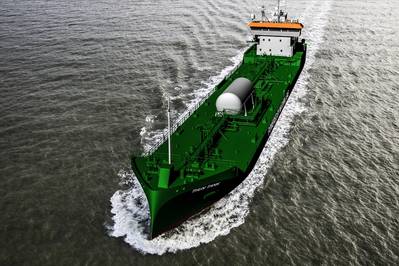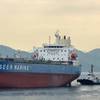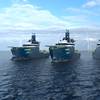Wärtsilä said it has been contracted to supply the engines, propellers and fuel supply systems for four new tanker vessels. The ships will run on both liquefied natural gas (LNG) and diesel, and are being built at the Scheepswerf Ferus Smit yard in the Netherlands for Sweden based Erik Thun AB. The order with Wärtsilä was booked in the first quarter of 2017.
In 2014, the Scheepswerf Ferus Smit yard built two cement carriers on behalf of Erik Thun AB. These are now operated by JT Cement; a joint venture company with Norway based KG Jebsen Cement. Those ships also feature Wärtsilä dual-fuel propulsion.
The 115-meter-long coastal tankers feature a 'next generation' design focusing on high energy efficiency, low noise levels both above and below the water, and environmental sustainability. The Wärtsilä solutions were selected primarily because they meet all these criteria. The full scope of supply for each of the four vessels includes a six-cylinder Wärtsilä 34DF dual-fuel main engine, a Wärtsilä LNGPac fuel supply system, a Wärtsilä Gas Valve Unit (GVU), and a Controllable Pitch Propeller (CPP) with HP nozzle. The equipment will be delivered to the yard commencing in 2018.
A notable feature of the Wärtsilä fuel system to be supplied is its open type Tank Connection Space (TCS) that allows natural ventilation. The benefits of this system are its reduced weight, a combined cargo heating medium that controls the temperature both inside the TCS as well as for evaporating the LNG, less installation work for the yard, and a reduced power supply requirement.
When delivered, the ice-class 1A vessels will be capable of handling the year round sailing conditions in the Baltic Sea.













